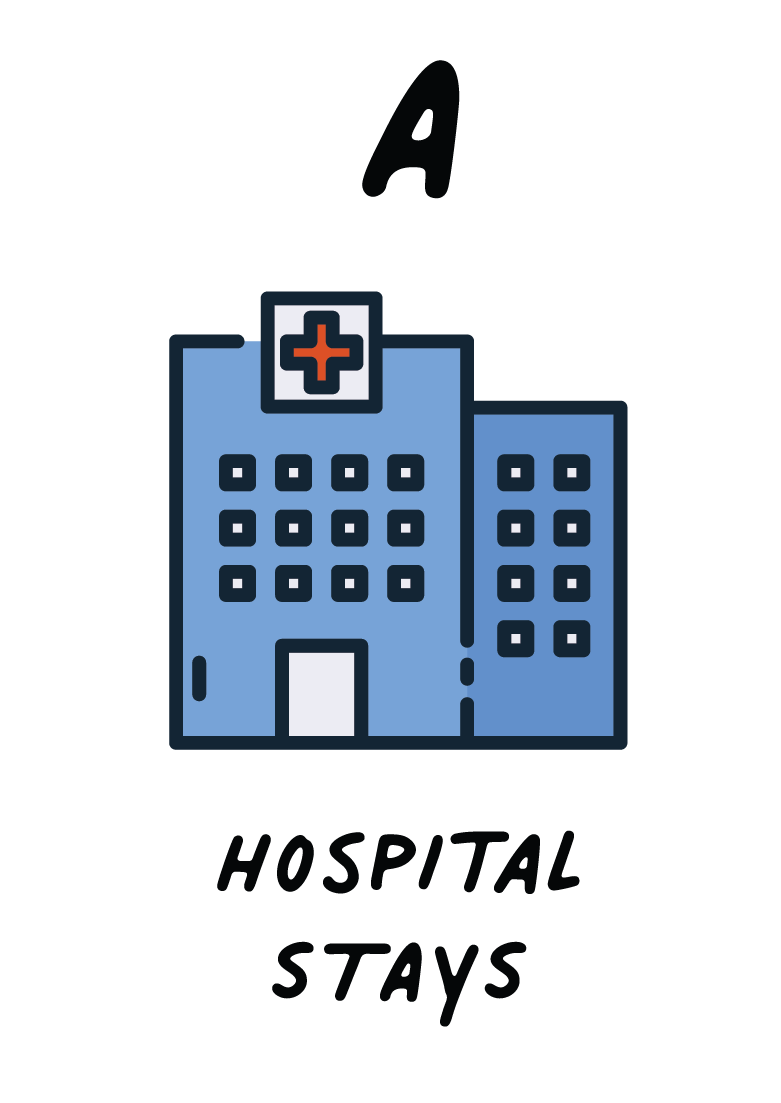
Part A, known as Hospital coverage, assists in the costs for inpatient hospital stay, skilled nursing facility stays, hospice, and home healthcare when it is medically necessary. Most people don’t pay a monthly premium for Medicare Part A when new to Medicare. If you or your spouse have worked at least 40 calendar quarters (10 years) in any job where you paid Social Security taxes, you do not have to pay a premium for Part A. Basically, you have already paid into this part of Medicare while you were working.
There are deductibles and copays associated with Part A. For example, you have a deductible when going to a hospital in 2024 of $1632 for every 60 day benefit period; This is NOT a yearly deductible like most commercial plans are designed.
You pay this in each benefit period:
- Days 1–60: $1,632 deductible.
- Days 61–90: $408 each day.
- Days 91 and beyond: $816 each day while using your 60 lifetime reserve days.
- Each day after you use all of your lifetime reserve days: All costs.
Medicare-covered inpatient hospital services include:
- Semi-private rooms
- Meals
- General nursing
- Drugs (including methadone to treat an opioid use disorder)
- Other hospital services and supplies as part of your inpatient treatment
A skilled nursing stay is covered for 100 days with a $0 copay for the first 20 days and then $204 copay per day for days 21-100 in 2024. Days 101 and beyond, you pay all costs.
There is a $0 copay for covered home healthcare and covered hospice care services. For home healthcare, you pay 20% of the Medicare-approved amount for durable medical equipment like a wheelchair. For hospice, you may have a copayment of $5 for each prescription drug and 5% for inpatient respite care.
It is important to understand skilled nursing and nursing home coverage (long-term care) are not the same thing. Medicare does NOT cover long-term care, such as extended stays in a nursing home. Long-term care insurance can be looked into separately if that is something you want to plan for.

